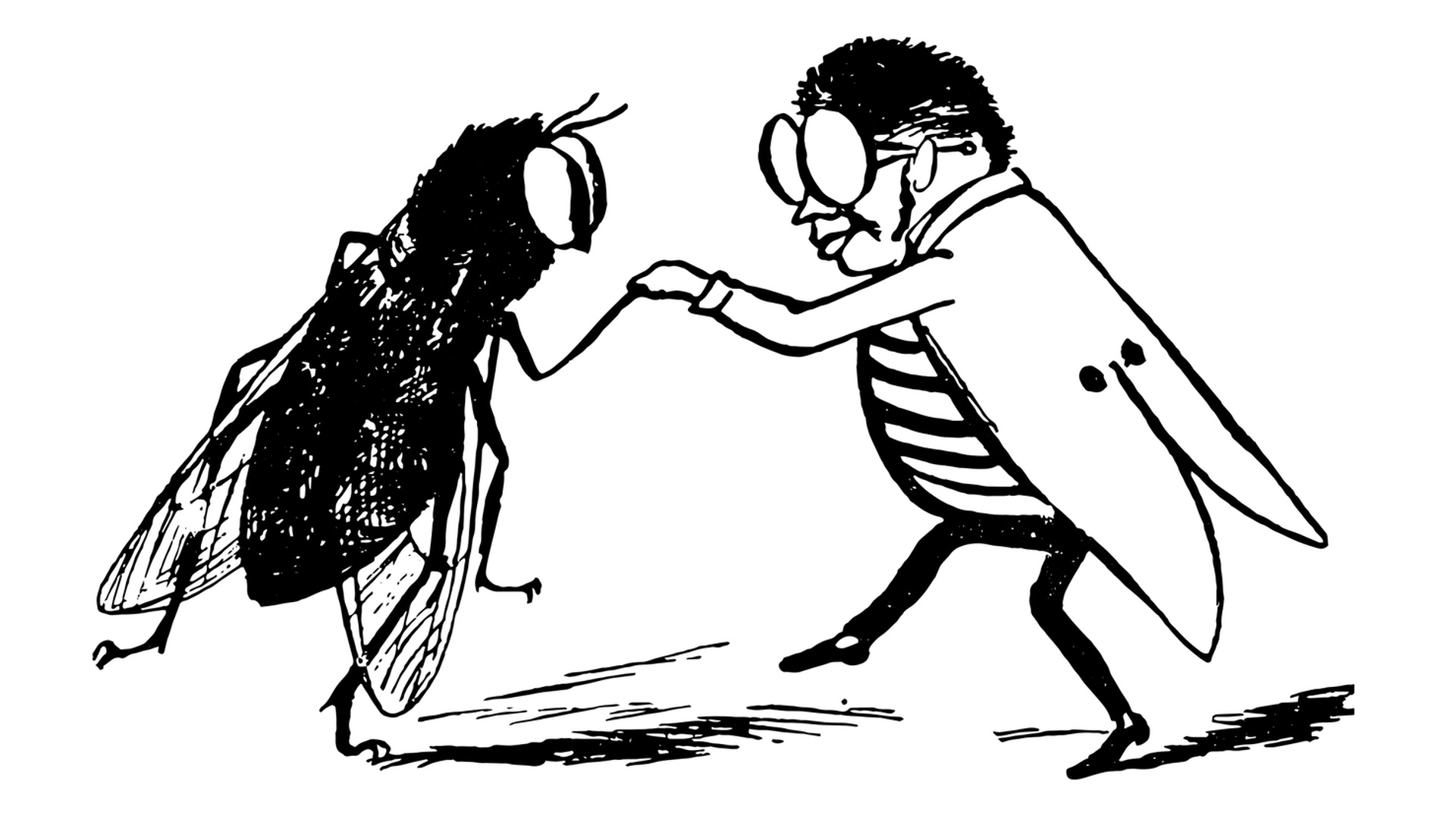
Who is Behind the Great Food Reset?
by James Corbett, The Corbett Report
January 23, 2023
Last week we looked at the ways that an engineered food crisis (or the perception of a crisis) is being used as an excuse to reengineer our food supply.
From cricket powder dumplings and bug burgers to GMOs and glyphosate to bioreactors and designer microbes to nutrigenomics and 3D printed material, the future of “food” is shaping up to be radically different from anything you’ve eaten before.
But in order to truly do something to derail the runaway train that is the Great Food Reset, we must first understand it. And in order to understand it, we have to know something about the people behind this agenda.
This week, we must answer the question: Who is Behind the Great Food Reset?
The Rockefeller Foundation
From the beginning of the so-called “Green Revolution” to the so-called “Gene Revolution,” the Rockefellers have been there, helping to move things along with their “philanthropic” donations.
They created the Mexican Agricultural Program, which was criticized from its very inception for trying to standardize and commercialize traditional Mexican farming practices in order to benefit of the Rockefellers and their corporate cronies.
They created the International Basic Economy Corporation in Brazil to industrialize that nation’s agricultural sector, with the explicit aim of hooking its farmers on expensive machinery and Rockefeller petroleum products and finding a sustainable business model in the process.
It was John D. Rockefeller III who, when sitting on the Board of Trustees of the Ford Foundation, convinced his fellow oiligarchs to join the “Green Revolution” by founding the Intensive Agriculture District Programme in India, which exacerbated the disparity between rich feudal landowners and poor farming peasants.
And then of course there’s the Rockefeller’s work in Africa, which today takes the form of the Alliance for a Green Revolution in Africa. AGRA’s stated goal is to “elevate the single African voice” on the world stage. It all sounds nice and fuzzy until you learn that 200 organizations have come together to denounce the alliance and its activities. They claim that the group has not only “unequivocally failed in its mission” but has actually “harmed broader efforts to support African farmers.”
As you might imagine, the Rockefellers’ influence over the global agricultural sector is not simply a thing of the past. Their family’s foundation continues to wield an inordinate amount of power over what ends up on your dinner plate and how it gets there.
One ominous case in point: the foundation’s July 2020 report—released mere months into the scamdemic—”predicting” that the generated health crisis would lead to a very real food crisis and that America would face “a hunger and nutrition crisis unlike any this country has seen in generations.”
And their proposed solution to this crisis? Subsidies for small farmers? Development of community gardens? A new food sovereignty campaign encouraging people to get their hands dirty and start growing more food themselves?
Of course not. On the contrary, the Rockefeller Foundation wants a further centralization of control over the food supply, including “a new, integrated nutrition security system.” Yes, you read that right, folks: feeding the hungry is now a “nutrition security” problem that can only be solved by massive federal intervention in the food sector.
Oh, and the title of this report? “Reset the Table: Meeting the Moment to Transform the U.S. Food System.”
So, no, the Rockefeller Foundation is not done meddling with the food supply. In fact, they’re just getting started.
Bill Gates
Of course, he is literally invested in the food reset through his financing of the fake meat industry. Gates was, infamously, an important early backer of “Impossible Burger” and its lab-grown synthetic biology food substitute. He also provided capital to Impossible rival Beyond Meat . . . until Beyond’s stock began to crumble. Miraculously, the Bill & Melinda Gates Foundation Trust was able to divest itself of its Beyond Meat stock right before the shares tanked in 2019. (The Gateses must be super-shrewd investors!)
But it gets worse. As PleaseStopTheRide.com has pointed out, Gates is also investing millions into “hacking your microbiome” to reengineer humans’ gut bacteria. You see, as it turns out, researchers are discovering that the microbiome—the mixture of bacteria, fungi and viruses that develop in the gut—can have serious effects on children’s physical and mental development, especially in the first year of life. And what does Gates do when he sees an important process that can help him to gain even further control over the human population. Hack it, naturally! But it’s for your own good, of course.
Also, as many people know by now, Bill Gates became the biggest owner of US farmland in 2021. Gee, I wonder why someone who’s so obsessed with completely reengineering the food supply and making us dependent on the lab-grown synthetic food substitutes he funds would be buying up farmland? A real head-scratcher, that one.
Speaking of head-scratchers, just why is Bill so passionate about pushing fake meat on the public, anyway? Why, to appease the weather gods, of course!
Speaking of fake meat . . .
World Economic Forum
But if by chance you were living under that rock, you wouldn’t know why it’s called the eat “ze” bugs agenda. Conspiracy realists, however, will be able to clue you in: it’s in (dis)honour of everyone’s favourite Bond villain reject, Klaus Schwab, the founder and executive chairman of the World Economic Forum.
Yes, the WEF is behind many different aspects of the so-called Fourth Industrial Revolution, and the eat ze bugs agenda is no exception. Never forget, it was Schwab who popularized the “Great Reset” rebranding of the very old “New World Order” idea. And Schwab’s desire to get humans off of traditional sources of protein and nutrients is very much a part of that Great Reset plan.
A quick search of the word “insects” on the WEF website reveals that it has been regularly promoting such hard-hitting journalistic pieces as:
5 reasons why eating insects could reduce climate change
Why we need to give insects the role they deserve in our food systems
Insects could soon be appearing on restaurant menus in Europe
and
Good grub: why we might be eating insects soon
The fat cats are now unwinding after their hard week at Davos. You can bet they’re not snacking down on cricket croquette or mealmoth flambé . . . though they may expect you to.
But the Davos despots had better watch their backs! It turns out they have competition.
The EAT Forum (Davos for Food)
The EAT Forum is an organization cofounded by the Wellcome Trust (yes, that Wellcome Trust). It emerged from the Stockholm Food Forum, a by-invitation-only conference on the business, science and politics of food production that is sometimes billed as the “Davos for Food.”
Never heard of EAT? Its “About” page reads like the usual corporate whitewash: “EAT is a non-profit dedicated to transforming our global food system through sound science, impatient disruption and novel partnerships.”
But if the very idea of a “Davos for Food” puts you off your lunch and EAT founder and executive chairman Gunhild Stordalen gives you some strong Lieutenant Ilia vibes, then you might want to take a look at Dr. Joseph Mercola’s assessment of the group in his article on the global technocrat cabal:
The EAT Forum’s largest initiative is called FReSH, which aims to transform the food system as a whole. Project partners in this venture include Bayer, Cargill, Syngenta, Unilever and Google. EAT also collaborates with nearly 40 city governments in Europe, Africa, Asia, North America, South America and Australia, and helps the Gates-funded United Nations Children’s Fund (UNICEF) create updated dietary guidelines.
Given a pedigree like that, you’d expect that EAT Forum’s advisory board to be stacked with globalists, insiders and career supergophers for the world’s elite . . . and you’d be right!
Unsurprisingly, among its many initiatives is “Shifting Urban Diets,” a plan to “demonstrate how scientific targets for food systems can be operationalized in the city context” by adopting the Lancet’s “Planetary Health Diet,” a WEF-promoted response to climate change hysteria that says you should eat more vegetables to stop hurricanes . . . or something like that.
Yes, the EAT Forum may not have crossed your radar yet, but if its track record, ambition to become the “Davos for food” and connections to seemingly every globalist insider and crony corporation in the industrial food system indicate anything, we’ll be hearing a lot more about this group in the near future.
USAID
The Board for International Food and Agricultural Development (BIFAD) is, according to USAID’s website, “a seven-member, presidentially appointed advisory board to USAID established in 1975 under Title XII of the Foreign Assistance Act, as amended, to ensure that USAID brings the assets of U.S. universities to bear on development challenges in agriculture and food security and supports their representation in USAID programming.”
Last year, BIFAD, in conjunction with “Feed the Future” (the U.S. government’s global hunger and food security initiative), released a working paper titled “Systemic Solutions for Climate Change Adaptation and Mitigation.” The paper argues that:
. . . a perfect storm of circumstances in which supply chain issues, regional agricultural and nutrition challenges, the ongoing effects of the COVID-19 pandemic, and regional conflict have combined to form a looming food security crisis.
After shoehorning in some climate change hysteria for good measure, they call for—you guessed it—a complete transformation of the food supply and global agriculture!
Specifically, BIFAD’s “Systemic Change” subcommittee has been tasked with providing “evidence-based recommendations to accelerate inclusive systems change to achieve transformative climate change adaptation and mitigation outcomes in agriculture, nutrition, and food systems.” The subcommittee’s proposals for achieving this ambitious goal include:
- linking “carbon markets” to “regenerative agriculture” (i.e., the financialization of nature that is all the rage in globalist circles these days);
- using ESG scores as a way to pressure companies into acquiescing to the vague, nebulous and ever-shifting demands of the Food Reset mafia;
- and, of course, “the promotion of insects as sustainable sources of proteins.”
The whole document is couched in the bland bureaucratic doublespeak of “equity,” “inclusion” and “sustainability.” Of course, it avoids delving too deeply into the specifics of this fundamental transformation of the food system that BIFAD is ostensibly investigating. But, if you know how to read between the lines, it isn’t hard to understand what the report is really saying. USAID’s “leverage” over developing countries—specifically referenced no less than 125 times—gives an insight into the Kissingerian food-as-a-weapon mentality that is the very basis of USAID and its mission. The entire enterprise reeks of a neocolonial landgrab masquerading as “philanthropy”—the kind of territorial taking that people in Africa and elsewhere have been warning about for decades.
What Can We Do?
But from this (admittedly incomplete) exploration we can derive a general understanding of the types of players that are behind this push to “transform the global food supply” and can accurately describe their methods and motivation. This is enough for us to start formulating our own plans for counteracting this agenda.
And that is the topic for next week. . . .
Connect with James Corbett — website — substack
Cover image credit: Prawny

Truth Comes to Light highlights writers and video creators who ask the difficult questions while sharing their unique insights and visions.
Everything posted on this site is done in the spirit of conversation. Please do your own research and trust yourself when reading and giving consideration to anything that appears here or anywhere else.











